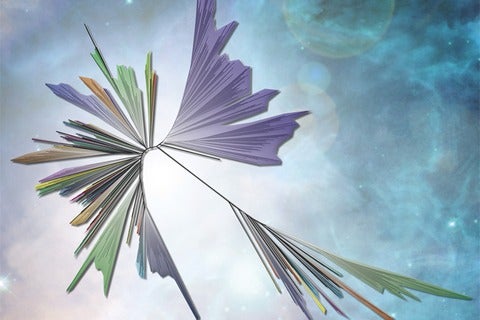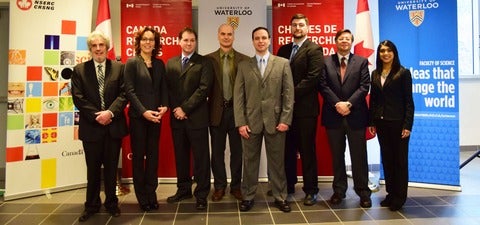Minister Chagger (far right) announces Waterloo grant winners, including Water Institute members David Blowes (second from right) and James R. Craig (third from right).
Water research was among several areas to receive substantial government support this past week from Natural Sciences and Engineering Research Council of Canada (NSERC) and Canada Research Chairs (CRC) grants. The Honourable Bardish Chagger, Minister of Small Business and Tourism, and member of parliament for Waterloo, revealed seven University of Waterloo award recipients — including Water Institute members David Blowes and James R. Craig — Friday during a special announcement in the University’s Science Teaching Complex.







